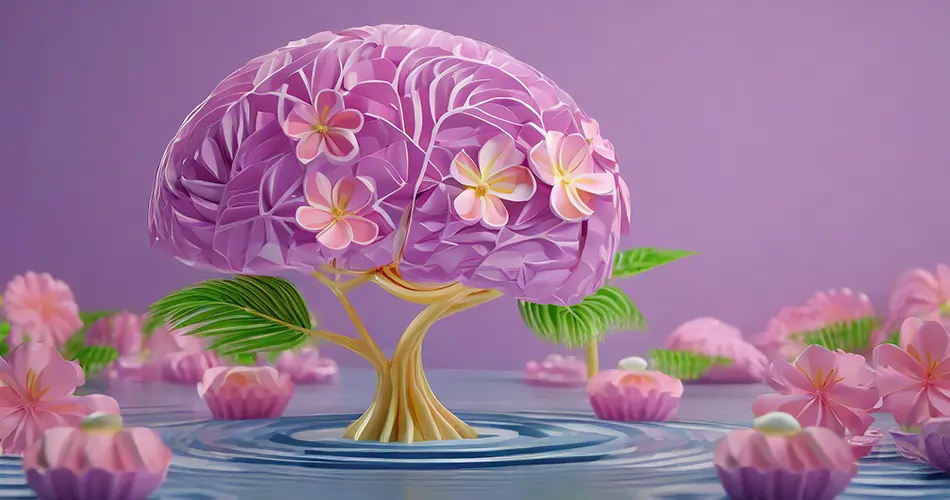Hey there! Welcome to my blog post all about aromatherapy for mental wellness. I’m so glad you’re here because taking care of our mental health is incredibly important, and I truly believe that aromatherapy can be a powerful tool in supporting our well-being. So, whether you’re looking for ways to manage stress, find a sense of calm, or simply enhance your overall mental wellness, this post is for you. Together, we’ll dive into the wonderful world of natural remedies and discover how they can positively impact our mental health. So, let’s get started, shall we?
Discover the most sought-after natural remedies for mental health in our Bestsellers collection



Understanding Aromatherapy
In today’s fast-paced world, finding ways to relax and unwind is crucial for our overall well-being. One popular practice that has gained significant attention is aromatherapy. But what exactly is aromatherapy, and how does it work? In this blog section, we will delve into the world of aromatherapy, exploring the concept of essential oils and their therapeutic properties. We will also highlight the fascinating connection between scent and emotions.



What is Aromatherapy?
Aromatherapy is a holistic healing practice that utilizes the power of essential oils to promote physical, mental, and emotional well-being. It is based on the idea that the aromatic compounds found in plants have the potential to support our body’s natural healing processes.
Essential Oils: Nature’s Healing Elixir
Essential oils are highly concentrated plant extracts that capture the essence of a plant’s fragrance and therapeutic properties. These oils are derived from various parts of plants, including leaves, flowers, bark, and roots. Each essential oil possesses unique chemical compositions that determine its specific benefits.
Some popular essential oils and their therapeutic properties include:
- Lavender: Known for its calming and soothing effects, lavender essential oil is often used to promote relaxation and improve sleep quality.
- Peppermint: With its invigorating and refreshing aroma, peppermint essential oil is commonly used to relieve headaches and enhance mental clarity.
- Tea Tree: Recognized for its antimicrobial properties, tea tree essential oil is used to treat skin conditions such as acne and fungal infections.
The Power of Scent and Emotions
Have you ever noticed how a particular scent can trigger powerful emotions or memories? This connection between scent and emotions is the basis of aromatherapy. When we inhale the aroma of essential oils, the scent molecules travel through our olfactory system and stimulate the limbic system in our brain. The limbic system is responsible for regulating emotions, memories, and behaviors.
By harnessing the power of scent, aromatherapy can help:
- Reduce stress and anxiety
- Improve mood and mental clarity
- Enhance relaxation and sleep
- Alleviate physical discomfort
Incorporating Aromatherapy Into Your Daily Routine
There are numerous ways to incorporate aromatherapy into your daily routine. Here are some popular methods:
- Diffusers: Using an essential oil diffuser is an effective way to fill your space with the aroma of your choice. Simply add a few drops of your preferred essential oil to the diffuser, and let it work its magic.
- Massage: Aromatherapy massage combines the therapeutic benefits of essential oils with the healing power of touch. This can be a deeply relaxing and rejuvenating experience.
- Bathing: Transform your bath time into a luxurious spa-like experience by adding a few drops of essential oils to your bathwater. The steam will release the aroma, creating a soothing ambiance.
- Inhalation: For quick relief or an instant mood boost, inhaling the aroma of essential oils directly from the bottle or using a personal inhaler can be highly effective.
Choosing the Right Essential Oils
When selecting essential oils, it’s essential to choose high-quality, pure oils from reputable brands. Look for products that are:
- 100% pure and natural
- Certified organic
- GC/MS tested for purity and potency
Comparing different brands and their offerings can be overwhelming. To help you make an informed decision, here is a comparison table showcasing some popular essential oil brands and their key features:
| Brand | Key Features |
|---|---|
| Brand A | – Certified organic |
| – Wide range of essential oils | |
| – Commitment to sustainable sourcing | |
| Brand B | – GC/MS tested for purity and potency |
| – Transparent sourcing practices | |
| – Unique blends for specific purposes | |
| Brand C | – High-quality oils sourced from around the world |
| – Extensive educational resources and guides | |
| – Commitment to fair trade practices |
Remember, everyone’s preferences may vary, so it’s important to explore and find what works best for you.
Benefits of Aromatherapy for Mental Wellness
Aromatherapy has been used for centuries as a natural way to promote overall well-being. In recent years, its benefits for mental wellness have gained significant recognition. In this blog post, we will explore the ways in which aromatherapy can positively impact mental health. From reducing stress to enhancing cognitive function, essential oils have the power to uplift and support our emotional well-being.



Reducing Stress
One of the most well-known benefits of aromatherapy is its ability to reduce stress. The soothing scents of certain essential oils can help calm the nervous system, allowing us to find a sense of peace and tranquility. Some key essential oils for stress reduction include:
- Lavender: Known for its calming properties, lavender essential oil can help ease anxiety and promote relaxation. A few drops in a diffuser or added to a warm bath can work wonders for stress relief.
- Chamomile: With its gentle floral scent, chamomile essential oil is often used to alleviate stress and promote a sense of calm. It can be diffused or applied topically for best results.
- Bergamot: This citrusy essential oil has been shown to reduce stress and promote a positive mood. It can be diffused or added to a carrier oil for a calming massage.
Promoting Relaxation
In addition to reducing stress, aromatherapy can also help promote relaxation. The right essential oils can create a calming environment, allowing us to unwind and find inner peace. Some essential oils known for their relaxation properties include:
- Ylang Ylang: With its sweet and floral scent, ylang-ylang essential oil can help calm the mind and body. It can be diffused or added to a carrier oil for a relaxing massage.
- Vetiver: Known for its grounding and soothing effects, vetiver essential oil can help promote relaxation and improve sleep quality. It can be diffused or added to a warm bath.
- Sandalwood: This woody and earthy essential oil is often used for its calming and grounding properties. It can be diffused or applied topically for relaxation purposes.
Improving Sleep Quality
Getting a good night’s sleep is essential for our mental well-being. Aromatherapy can play a significant role in improving sleep quality by promoting relaxation and reducing anxiety. Here are some essential oils that can help improve sleep:
- Cedarwood: With its warm and woody aroma, cedarwood essential oil can help create a relaxing atmosphere that promotes restful sleep. It can be diffused or added to a bedtime routine.
- Roman Chamomile: Known for its calming properties, Roman chamomile essential oil can help soothe the mind and prepare the body for sleep. It can be diffused or added to a warm bath before bedtime.
- Clary Sage: This herbaceous oil has sedative properties that can promote a deep and restful sleep. It can be diffused or added to a carrier oil for a relaxing massage before bed.
Boosting Mood
Aromatherapy can also have a positive impact on our mood. The right scents can uplift our spirits, boost our mood, and promote a sense of well-being. Some essential oils known for their mood-boosting properties include:
- Sweet Orange: With its bright and citrusy scent, sweet orange essential oil can help lift mood and promote a positive outlook. It can be diffused or added to a carrier oil for a mood-boosting massage.
- Peppermint: Known for its refreshing and invigorating properties, peppermint essential oil can help improve focus, clarity, and mood. It can be diffused or applied topically for an energizing effect.
- Rosemary: This herbaceous essential oil is often used to improve mental clarity, enhance memory, and boost mood. It can be diffused or added to a carrier oil for a stimulating massage.
Enhancing Cognitive Function
Lastly, aromatherapy has shown promise in enhancing cognitive function. Certain essential oils can help improve focus, concentration, and memory. Here are some essential oils known for their cognitive-enhancing properties:
- Rosemary: As mentioned earlier, rosemary essential oil can help improve mental clarity and memory. It can be diffused or added to a carrier oil for a stimulating massage.
- Peppermint: In addition to its mood-boosting properties, peppermint essential oil can also improve focus and mental alertness. It can be diffused or added to a diffuser necklace for on-the-go cognitive support.
- Lemon: With its refreshing and uplifting scent, lemon essential oil can help improve focus and concentration. It can be diffused or added to a carrier oil for a stimulating massage or used in a diffuser during study or work sessions.
In conclusion, aromatherapy offers a wide range of benefits for mental wellness. From reducing stress and promoting relaxation to improving sleep quality, boosting mood, and enhancing cognitive function, essential oils can be a valuable tool in supporting our emotional well-being. So why not give aromatherapy a try and experience the positive effects yourself?
Practical Application of Aromatherapy
In this blog section, we will explore practical ways to incorporate aromatherapy into your daily routine. Aromatherapy is the use of essential oils to promote physical and psychological well-being. By utilizing different methods of application, you can easily enjoy the benefits of aromatherapy in your own home.
Methods of Using Essential Oils
Inhalation
Inhalation is one of the most common methods of using essential oils. It involves breathing in the aroma of the oils, which can have a direct impact on your mood and emotions. Here are a few ways to practice inhalation:
- Steam Inhalation: Add a few drops of essential oil to a bowl of steaming hot water. Lean over the bowl, covering your head with a towel, and breathe deeply for a few minutes. This method is particularly effective for respiratory conditions.
- Aromatherapy Inhalers: These are portable devices that allow you to carry your favorite essential oils with you wherever you go. Simply inhale through the inhaler whenever you need a quick pick-me-up or to relax.
- Diffusers: Electric diffusers spread the aroma of essential oils throughout a room. They are a convenient way to enjoy aromatherapy continuously. Choose a diffuser that suits your needs, whether it’s a nebulizing diffuser, ultrasonic diffuser, or heat diffuser.
Topical Application
Topical application involves applying essential oils directly to the skin. However, it is essential to dilute essential oils with a carrier oil to prevent skin irritation. Here are a few ways to safely apply essential oils topically:
- Massage: Combine a few drops of your preferred essential oil with a carrier oil, such as coconut or sweet almond oil, and massage it into your skin. This method not only allows for the absorption of the oil but also provides a relaxing experience.
- Bath: Add a few drops of essential oil to your bathwater for a soothing and aromatic experience. Make sure to mix the oil with a dispersing agent, such as Epsom salts or a carrier oil, to ensure it is evenly distributed.
Diffusion
Diffusion is another popular method of enjoying aromatherapy. It involves dispersing essential oils into the air using a diffuser. Here are a few diffuser options to consider:
- Ultrasonic Diffusers: These diffusers use water to disperse a fine mist of essential oils into the air. They also act as humidifiers, making them ideal for dry environments.
- Nebulizing Diffusers: Nebulizers use pressurized air to break essential oils into small particles, providing a more potent and concentrated aroma. They don’t require water or heat, making them a great option for therapeutic use.
- Reed Diffusers: These diffusers consist of reed sticks placed in a bottle of essential oil. The reeds absorb the oil and release the fragrance into the air. They are a low-maintenance option for subtle and continuous aroma.
Safety Considerations and Potential Side Effects
While aromatherapy is generally safe, it’s important to be aware of a few precautions:
- Essential Oil Quality: Choose high-quality essential oils from reputable brands to ensure purity and effectiveness.
- Skin Sensitivity: Always perform a patch test before using a new essential oil topically. Dilute the oil with a carrier oil and apply a small amount to your inner forearm. Wait 24 hours to check for any adverse reactions.
- Pregnancy and Children: Some essential oils may not be safe for use during pregnancy or for young children. Consult with a qualified aromatherapist or healthcare professional before using essential oils in these situations.
Harness the power of scent to enhance your mental wellbeing
In conclusion, aromatherapy offers a range of benefits for mental wellness. By delving into the fundamentals of aromatherapy and discovering the advantages it brings, as well as adopting safe practices when using essential oils, we can significantly improve our overall well-being. I wholeheartedly recommend embracing aromatherapy as a natural and holistic method to bolster our mental health. Give it a try and witness the positive impact it can have on your mental well-being.









I’ve heard that certain essential oils can help with anxiety and stress. Can you recommend any specific oils or blends that are effective?
Thank you for your question! Yes, there are several essential oils that are known to help with anxiety and stress. Some popular ones include lavender, chamomile, and bergamot. I can definitely provide more details and specific recommendations in a future article. Stay tuned!
I recently started using lavender essential oil in a diffuser before bedtime and it has really helped me relax and sleep better. It’s amazing how aromatherapy can have such a positive impact!
I’m so glad to hear that lavender essential oil has helped you relax and sleep better! Aromatherapy can indeed have powerful effects on our mental wellness. It’s always great to hear real-world applications of the information. Thank you for sharing your experience!
I’m interested in learning more about the science behind how aromatherapy affects our mental wellness. Can you provide more details on the physiological mechanisms involved?
Absolutely! The physiological mechanisms behind how aromatherapy affects our mental wellness are fascinating. I will definitely delve into more details on this topic in a future article. Thank you for your interest!
I would love to see a section in this article about the safety precautions and guidelines for using essential oils. It’s important to know how to use them correctly.
That’s a great suggestion! Safety precautions and guidelines for using essential oils are indeed important. I will make sure to include a section on that topic in a future article. Thank you for your input!
Thank you for your comment! I’m glad the article was able to provide you with a good understanding of aromatherapy. If you have any specific questions or topics you’d like me to cover in future articles, please let me know!
I’ve always been interested in aromatherapy but never really understood how it works. This article gave me a good overview. Thanks!